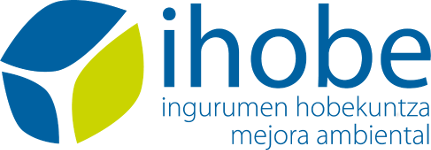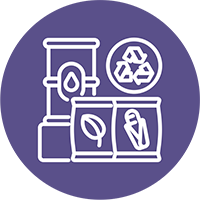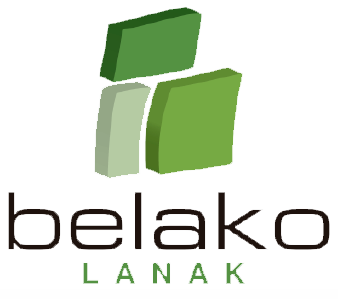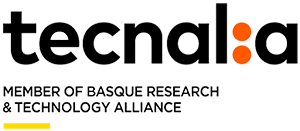TRACEX
DIGITAL PLATFORM FOR SURPLUS EXCAVATED EARTH AND SECONDARY CONSTRUCTION MATERIALS
The construction sector must face challenges to remain competitive and align itself with the new paradigms of the circular economy and the digital revolution. Among others: the high demand for raw materials and the inefficiency of their consumption, the high generation of waste, the waste of mineral resources with a high potential for recovery, and inefficient logistics. There is a lack of interaction between the agents involved, leading to a lack of information and the sector is clearly not digitalised. Several digital platforms created to facilitate the exchange of materials and waste between agents in the value chain (Terrass, Backacia and Inex Circular in France, Easywaste or Circular Market in Spain, etc.) have failed in their marketing, and others address different sectors and waste streams.
DE DIEGO, which is behind TRACEX, and the partner companies, BELAKO and GUTRAM, cover the entire value chain of the construction sector and the main flows of material resources. The digital services company, HERMENEUS WORLD, and the TECNALIA Technology Centre have also worked on TRACEX.

DRIVING FACTOR
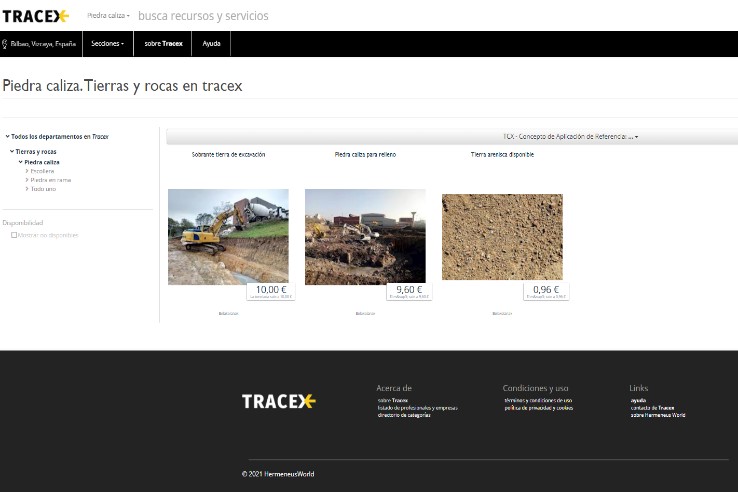
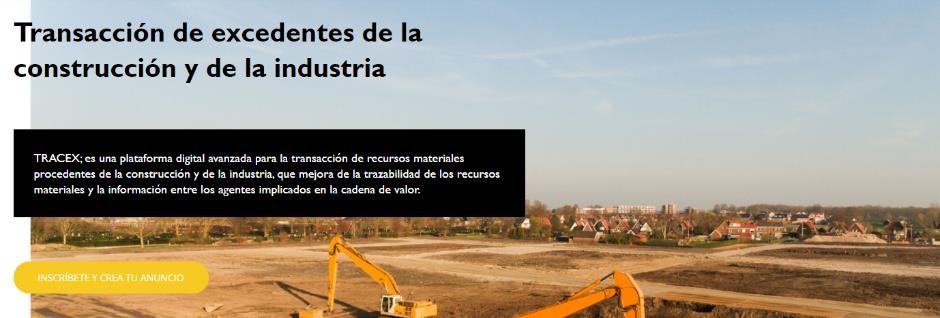
 OBJECTIVES
OBJECTIVES
- Implement, prototype, demonstrate and market an advanced application for the exchange of surplus excavated earth and secondary construction materials that enables the different agents in the value chain to offer, locate and exchange material resources with other agents and quantify the environmental and economic impact of their operations.
- Integrate advanced functionalities to improve the usability and user experience of its use and its associated services.
- Launch the application on the market and create a Start-up to monetise the use of the application and supply the associated services.
- Reduce environmental impact by improving resource efficiency (10%) and reducing greenhouse gas emissions (20%).
 RESULTS
RESULTS
- Design, development and optimisation of a digital platform based on a Market Place with advanced functionalities for the exchange of resources. The added value that differentiates it from other existing platforms is based on functionalities such as: advanced search service for resources according to final applications; geo-positioning and decision-making service; traceability management; integrated quality control; impact quantification and analysis service (economic savings, carbon footprint, reduction of waste and distances travelled); and relationship with the local administration.
- Demonstration and technical and economic validation to obtain a functional and marketable product. The functional application is accessible from https://www.tracex.eu/. The associated services offered are: fully on-line shop and self-publishing website; positioning in Google (SEO); own transport configurator; order management tool; quantification and analysis of environmental and economic impacts; TRACEX environmental impact certificate; document management; and preparation of documentation adapted to public administration requirements.
- Creation of the TRACEX Start-up to monetise the services offered by the platform.
- Savings in the emission of 2,900 tonnes of CO2 equivalent per year, basing the impact of the application on the 10% increase in the reuse of secondary materials, and a 20% reduction in the number of trips associated with transport in the Basque Country.
 CONCLUSIONS
CONCLUSIONS
- Digital tools have limited penetration in the sector. The lack of success of other similar tools is due to their ad-hoc use without any further obligation to do so, as there are other ways of keeping in contact with suppliers or customers. TRACEX offers functionalities that add value, such as: the calculation of environmental impact with the TRACEX seal; the generation of documentation adapted to the administration; the order management tool that improves the user experience; the personalised web page of the companies that serves as a showcase for other services; etc.
- The competitive digital market has led to a rapid market launch of the platform, which has enabled the launch of a pioneering and unrivalled solution that has positioned itself as the benchmark. TRACEX will be implemented in other regions outside the Basque Country by adapting the search engines and the decision support service.
- TRACEX will incorporate traceability layers using blockchain technology to ensure the inviolability of the data exchanged.
ENVIRONMENTAL
TECHNICAL
ECONOMIC
COMMERCIAL
ON THE MARKET
